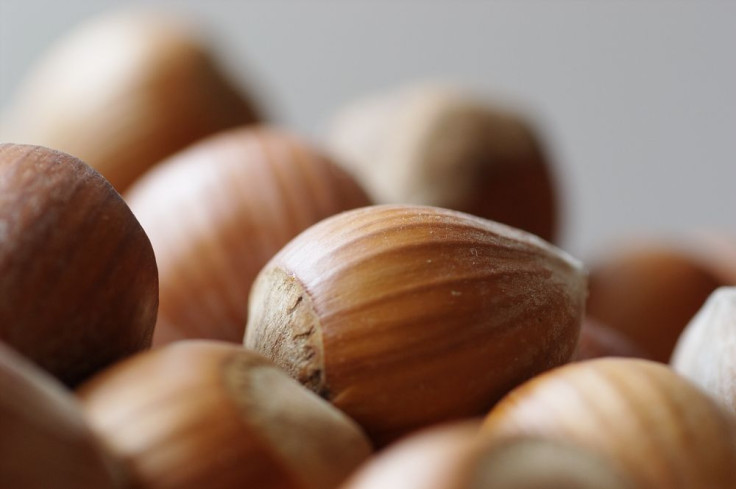‘Health Nuts’ Lead Longer Lives: Just 1 Serving Per Week Lowers Chance Of Dying By 20%

Whether from car crashes, ischemic heart disease, or uncovered manholes, people who eat nuts are much less likely to die.
In a large study, investigators found that those who consumed nuts—just a handful a day—were 20 percent less likely to die than others from any cause over a 30-year period. Even better, regular consumers of nuts were more likely to be slender, shuttering concerns that such high-fat fare would lead to weight gain.
Lead investigator Charles S. Fuchs, director of the Gastrointestinal Cancer Center at Dana-Farber Cancer Institute, says the study also examined the protective effect on specific causes of death.
"The most obvious benefit was a reduction of 29 percent in deaths from heart disease—the major killer of people in America," Fuchs said in a statement. "But we also saw a significant reduction, 11 percent, in the risk of dying from cancer.”
Yet, investigators failed to determine whether any specific diet or types of nuts helped provide the protective effect. A lowered death rate was observed among those who ate either peanuts or “tree nuts”: walnuts, hazelnuts, almonds, Brazil nuts, cashews, macadamias, pecans, cashews, pistachios, and pine nuts.
Previous work had found a link between increased consumption of nuts and lowered risk of diseases such as heart disease, type 2 diabetes, colon cancer, gallstones, and diverticulitis. Studies have also found an association between such dietary supplements—or staples, for many gatherers in the hunter-gatherer dyad—and reductions in cholesterol, oxidative stress, inflammation, adiposity, and insulin resistance.
To date, smaller studies had shown associations between increased consumption of nuts and lowered death risk only in specific populations. However, this new study, published Wednesday in the New England Journal of Medicine, draws from two ongoing observational studies collecting data on more than 76,000 young women and more than 42,000 young men. In those studies, participants submit answers to questionnaires every two or four years, describing, too, their consumption of nuts—down to the serving size of just once ounce.
Investigators also used complex data analysis methods to eliminate possibly confounding factors that might otherwise explain the lowered death risk. People who consume greater amounts of nuts are also more likely to exercise, eat fruits and vegetables, and drink more alcohol. They’re less likely to smoke and more likely to be slender. Yet, investigators say they were able to isolate all of those factors from greater consumption of nuts and lowered death risk, investigator Ying Bao, said in the statement.
"In all these analyses, the more nuts people ate, the less likely they were to die over the 30-year follow-up period."
In the study analysis, people who ate nuts less than once per week experienced only a 7 percent lowered death risk, compared to an 11 percent reduction for those who consumed a serving or so once per week. Those who consumed greater amounts experienced even lower risk, with a 13 percent reduction for those who consumed nuts two to four times per week, and a 15 percent and 20 percent reduction for those consuming five to six times per week and seven or more times per week.
Although failing to prove a definitive causal link, investigators say their findings prove consistent with a “wealth of existing observational and clinical trial data to support health benefits of nut consumption on many chronic diseases.” The U.S. Food and Drug Administration had concluded in 2003 that 1.5 ounces per day of most types of nuts may confer a lowered risk of heart disease.
Published by Medicaldaily.com



























